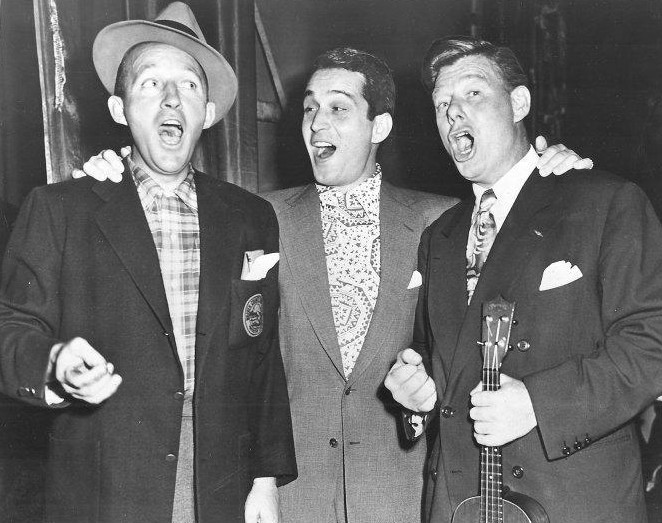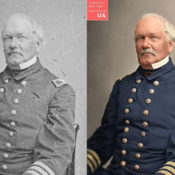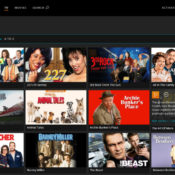Recently in my newsletter, ResearchBuzz, I linked to an article in Good Housekeeping called We’re Losing Generations of Family History Because We Don’t Share Our Stories. It was a discussion of talking to your family members and how to elicit thoughts and memories to get a better idea of your family history.
My link got a lot of responses and shares when I posted to Facebook. And I’m glad of that. But at the same time I wasn’t completely satisfied by the article. Sometimes relationships within a family might be so fraught that asking direct questions like “Who do you most look like?” can be hazardous. And asking interview-style questions like “If you could learn any new skill, what would it be and why?” might seem a little interrogative, or challenging to someone suffering from age-related cognitive impairment.
Don’t get me wrong, it’s a good article or I wouldn’t have linked to it. But I want to build on it by sharing some of my experiences getting my grandmother to talk about her family history. When it comes to talking to her about her life and experiences, I’ve had one terrific ally: YouTube. Here are three ways I’ve used YouTube to learn more about my Granny’s life.
The Sound of Music
My grandmother loves music. She’s got a piano against one wall in her living room and an organ on the opposite wall. She’s one of those people who will absentmindedly sing as they go about their day (I definitely inherited that gene). Sometimes when she sings a song I don’t know, I’ll listen and sing a little with her, then ask her what the song is. One of the first times I did this, the song was I’m a Lonely Little Petunia in an Onion Patch. I took out my phone and looked it up on YouTube, and then played a few different versions until we got to the one she remembered, the one by Arthur Godfrey. We talked about it, and it lead to a natural conversation about when she listened to music and her favorite music at the time.
The best part is now Granny will think of a song and say, “Is such and such a song on your phone?” Between YouTube and Spotify, I have never been let down, and we’ve had any number of talks about Patti Page and Tennessee Waltz, and Perry Como and Bing Crosby.
Patti Page singing Tennessee Waltz (Uploaded to YouTube by Patti Page / Universal Music Group)
Those Old Time Radio (and TV) Programs
Once Granny mentioned in passing a high school tradition; on Fridays (she’s pretty sure) everybody would go to the auditorium for a one-hour program about classical music. I asked her the name of the program, and she told me the name (Music Appreciation Hour) and thought that the person presenting it was Walter somebody.
I did some Googling and found it (Walter Damrosch) but wasn’t optimistic about finding actual copies of the program — after all, Granny graduated high school in 1942. And I didn’t. But I did find enough that I could tell her more about the program including the interesting fact that it ended the year she graduated. She told me about going into that old auditorium on Friday afternoons, and how warm it was, and how mostly she just curled up in her seat and fell asleep listening to the music. That led to a story about her and her best friend going to a classical music concert in Raleigh, and Granny asking her friend what she was doing as she leaned over her seat in the balcony to look down at the audience below. Her best friend’s response: “I’m counting bald-headed men!”
I had better luck finding programs when she mentioned the Old Fashioned Revival Hour, a radio gospel program that ran from 1937 to 1968. There’s an entire Web site devoted to rebroadcasting the program; it was a kick to share those 50-year-old programs with her. I was also shocked to find that a 1950s TV program she mentioned, Don McNeill’s Breakfast Club, had partial episodes available on YouTube. Granny told me all about listening to that program, and about my mother’s pet canary who would keep perfect time as Don McNeill had everyone march around their breakfast table. I had no idea my mother had a canary! We had a good talk about that bird.
Before You Were Born
Asking my Granny what things were like when she was young has always made me a little uncomfortable; I felt like I was a) asking her to remember exactly how old she was and b) taking her back to a time when people she loved very much were still here (like her own beloved grandmother). But with YouTube, I don’t have to do that.
What I do instead is find movies and short films that came out before she was born. She was born in 1923, so you might think it’s difficult, but nothing could be further from the truth! Search YouTube for Roscoe Arbuckle or Buster Keaton or Harold Lloyd or Charlie Chaplin. YouTube has plenty of shorts and full movies from that era. Granny and I watch them, and when I see something interesting I’ll ask “Granny, was it like that with you growing up?” She delights in saying “Noooooo! That was before my time!” before telling me what it was like for her. It flips the script from “You’re so old, do you remember when..” to “You were too young for this, but tell me what it was like for you.”
YouTube gets a lot of attention nowadays for viral videos and disinformation and whatnot. But it’s also an ever-increasing source of cultural memory as people upload old radio programs and sitcoms and even game shows. (I am here to testify that What’s My Line is still really, really funny.) It’s an incredible wealth of video that stretches back into the 19th century; the oldest film I have seen on YouTube dates to 1896. You might also want to look at the Moving Image Archive, which houses more than five million videos.
Video from April 11, 1896, High Street in Marseille, France (Uploaded to YouTube by guy jones)
Take advantage of that when learning more about your family history. It might be that past TV and radio shows or music brings out family stories you’ve never heard before, and you may get some new entertainment favorites of your own.
Featured image: Bing Crosby, Perry Como, and Arthur Godfrey (Wikimedia Commons)
Become a Saturday Evening Post member and enjoy unlimited access. Subscribe now




Comments
Yes, YouTube is showing that the hopeful vision of early TV programmers that TV would become the greatest educational tool in history ( and they wanted to believe that and, in some cases, did ), though dashed by painful reality, is actually being fulfilled by the thousands of individuals, and individualists, who are stubborn in their conviction that they’ll find at least a few other weirdos who share their particular passions.
Just today, I discovered a guy who has about six hundred subscribers. At least one of his videos, though it’s been up two years, hasn’t been watched once.
I’m about to change that.
Thank God for YouTube, if not for all that many things on it. And what TV network could possibly have served a wackjob who is fascinated by the War Between the States, Germany between the two world wars, and near miraculous videos which explain decisive moments in wartime battles; and jazz piano, the Dutch channel which aims to videotape the entire output of Johann Sebastian Bach, Groucho Marx, and hundreds of other things I’ve stumbled upon, such as interviews with James Thurber and Evelyn Waugh?